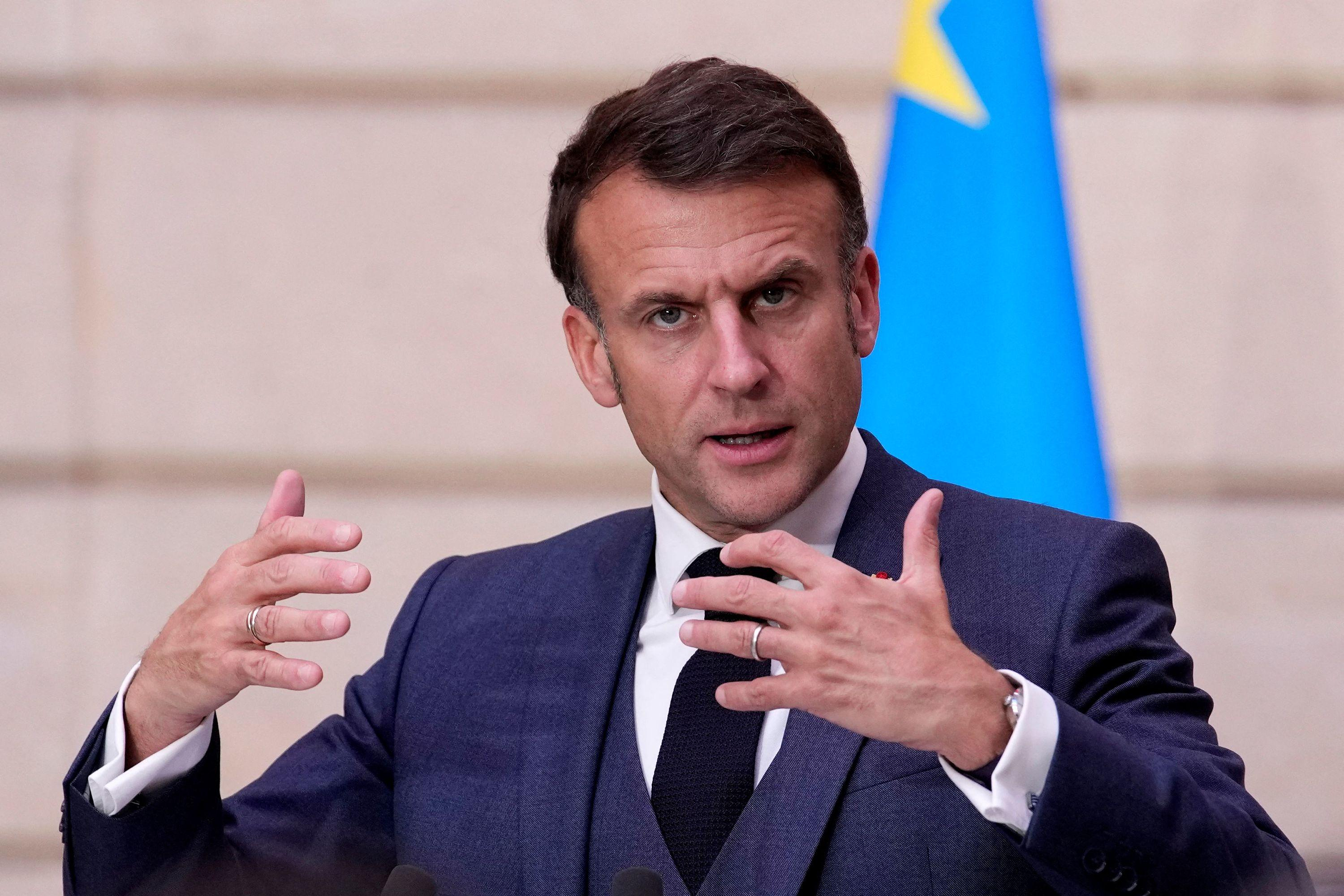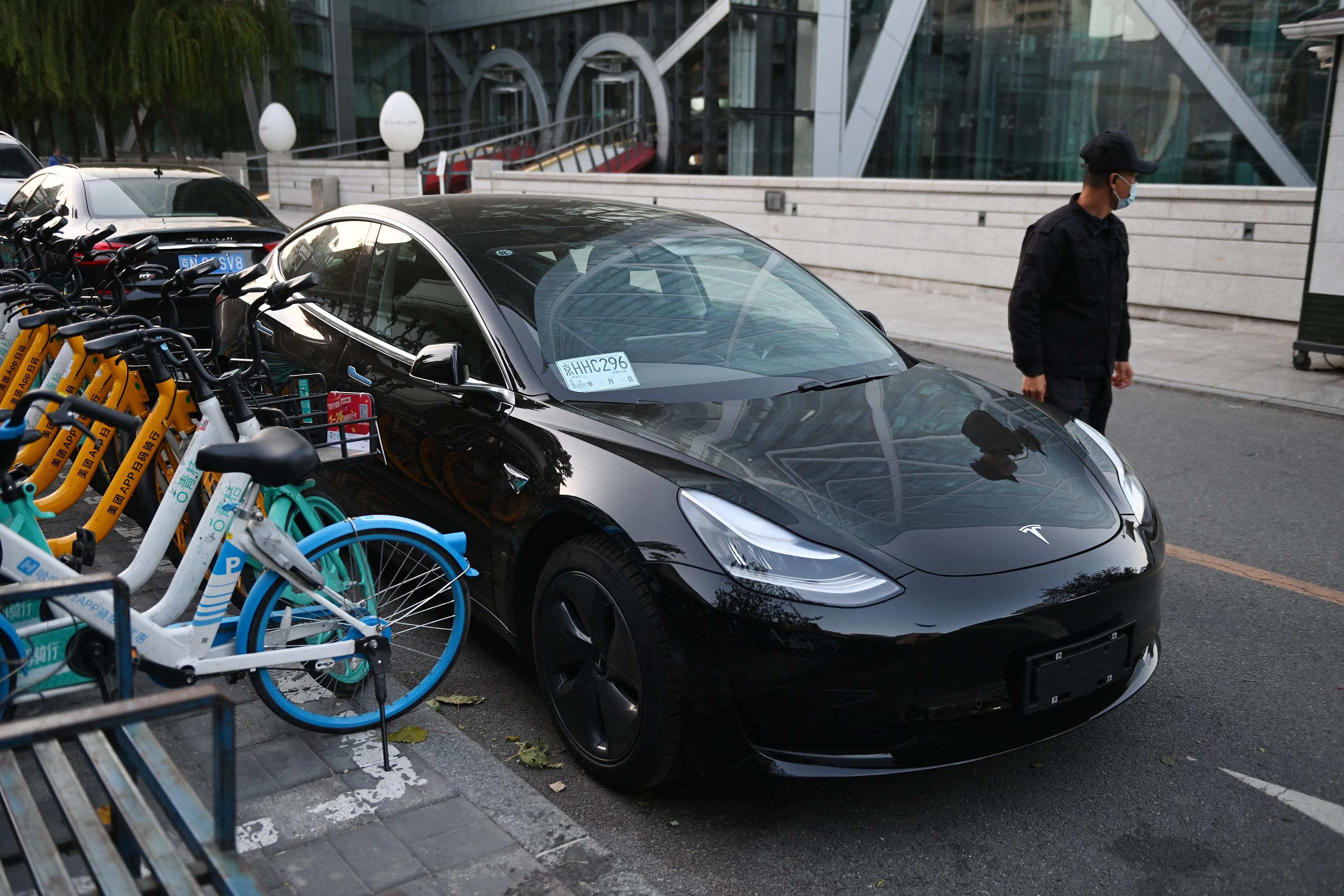Hollywood actors and major studios reached an agreement on Wednesday, November 8 to end the strike which has paralyzed the production of films and series in the United States for many months and has cost the American economy billions. announced the actors union SAG-AFTRA.
“The strike will officially end on Thursday, November 9 at 12:01 a.m. Los Angeles time,” the organization explained in a statement. An “agreement in principle” was reached after 118 days of strike by the actors, who demanded better remuneration in an industry disrupted by the advent of streaming and safeguards in terms of artificial intelligence. The exact content of the agreement has not yet been revealed, but “further information will be communicated” on Friday, the union said. For big stars and extras to return to the set and allow filming to resume, the 160,000 actors, dancers and other stunt members of SAG-AFTRA must still approve their new collective agreement by a vote. A step widely seen as a formality.
Big names in Hollywood celebrated the end of the strike. “Perseverance pays!” exclaimed Jamie Lee Curtis on Instagram. “I'm very happy that we all came to an agreement,” greeted Zac Efron from the red carpet of the premiere of the film Iron Claw. “Let’s get back to work, let’s go, I’m so happy.”
Negotiations with employers have taken place almost daily over the past two weeks, often with the CEOs of Disney, Netflix, Warner Bros, and Universal in person around the table. Because the need to put an end to this social movement was becoming more and more pressing. Besides a minority of big celebrities, most actors without filming found it increasingly difficult to make ends meet - some fell back on other jobs. The studios had gaping holes in their release schedules for next year and beyond.
After the postponement of major productions, such as the second part of the Dune saga or the Stranger Things series, the studios will now want to return to work as quickly as possible. The sector has just gone through a double historic social movement: when the actors went on strike in mid-July, the screenwriters had already stopped work since the beginning of May. Hollywood has not experienced such a crisis since 1960, when Ronald Reagan headed the actors' union - before becoming president of the United States. In total, the paralysis of the sector in recent months has cost at least $6 billion, according to recent estimates by economists.
Actors and screenwriters shared an observation: apart from star actors and star “showrunners”, most of them were no longer able to earn a decent living in the era of streaming. Not only because the platforms produce series with far fewer episodes per season than on television, but also because Netflix and others have drastically reduced the revenues due to each rebroadcast of films and series. Unlike television, where a rebroadcast can be paid for through the advertising model based on audience figures, a streamed work was subject to a flat rate payment, regardless of the popularity of the program.
The studios finally reached an agreement with the writers at the end of September and most of them have since returned to work. But despite this progress, negotiations with the stakeholders have dragged on. To break the deadlock, the two parties have found, according to the specialist press, a compromise on the minimum wage, which should increase by around 8% compared to the previous three-year agreement: this is the largest increase in decades, even if it remains below the initial demands of the actors. On the streaming side, a bonus system for actors playing in successful series or films will be put in place.
The supervision of artificial intelligence (AI) was another major point of tension, particularly in the home stretch of the negotiations. Actors feared that studios would use this technology to clone their voices and images for reuse in perpetuity without compensation or consent. The studios had made proposals in this area, but the actors' union believed that these measures did not go far enough. In recent days, the two parties have notably fought over the conditions surrounding the studios' rights to the image of star actors after their death.

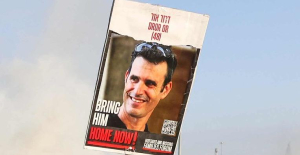 Who was Dror Or, the Israeli father who died as a hostage in the hands of Hamas?
Who was Dror Or, the Israeli father who died as a hostage in the hands of Hamas?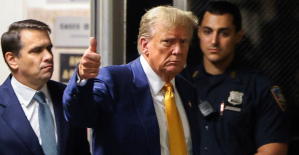 “Pay in cash”: at his trial, Donald Trump faced with an embarrassing recording
“Pay in cash”: at his trial, Donald Trump faced with an embarrassing recording Italy: a grandmother accidentally serves a bottle filled with wine to a baby, he has an alcoholic coma
Italy: a grandmother accidentally serves a bottle filled with wine to a baby, he has an alcoholic coma The mysterious skeletons of Hermann Göring's villa
The mysterious skeletons of Hermann Göring's villa Children born thanks to PMA do not have more cancers than others
Children born thanks to PMA do not have more cancers than others Breast cancer: less than one in two French women follow screening recommendations
Breast cancer: less than one in two French women follow screening recommendations “Dazzling” symptoms, 5,000 deaths per year, non-existent vaccine... What is Lassa fever, a case of which has been identified in Île-de-France?
“Dazzling” symptoms, 5,000 deaths per year, non-existent vaccine... What is Lassa fever, a case of which has been identified in Île-de-France? Sánchez cancels his agenda and considers resigning: "I need to stop and reflect"
Sánchez cancels his agenda and considers resigning: "I need to stop and reflect" What is the 'phantom flight' scandal for which Qantas is being forced to pay a hefty fine?
What is the 'phantom flight' scandal for which Qantas is being forced to pay a hefty fine? The State renews its promises of support for the automobile industry
The State renews its promises of support for the automobile industry Jump in bankruptcies and decline in business creations: which departments suffered the most in 2023?
Jump in bankruptcies and decline in business creations: which departments suffered the most in 2023? After 50 years of existence, “Numbers and Letters” will disappear from the France Télévisions channels
After 50 years of existence, “Numbers and Letters” will disappear from the France Télévisions channels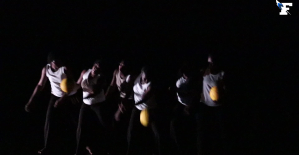 The incredible musical juggling of the Basketteuses de Bamako
The incredible musical juggling of the Basketteuses de Bamako Death of Frank Stella, the most spectacular painter-sculptor
Death of Frank Stella, the most spectacular painter-sculptor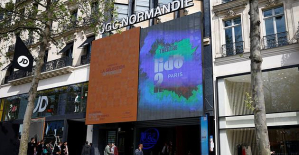 Film buff's memories of the Champs-Élysées, by Éric Neuhoff
Film buff's memories of the Champs-Élysées, by Éric Neuhoff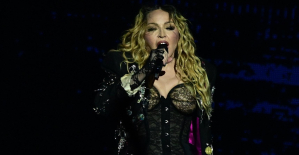 Madonna thrills Brazilians on Copacabana beach
Madonna thrills Brazilians on Copacabana beach Omoda 7, another Chinese car that could be manufactured in Spain
Omoda 7, another Chinese car that could be manufactured in Spain BYD chooses CA Auto Bank as financial partner in Spain
BYD chooses CA Auto Bank as financial partner in Spain Tesla and Baidu sign key agreement to boost development of autonomous driving
Tesla and Baidu sign key agreement to boost development of autonomous driving Skoda Kodiaq 2024: a 'beast' plug-in hybrid SUV
Skoda Kodiaq 2024: a 'beast' plug-in hybrid SUV The home mortgage firm rises 3.8% in February and the average interest moderates to 3.33%
The home mortgage firm rises 3.8% in February and the average interest moderates to 3.33% This is how housing prices have changed in Spain in the last decade
This is how housing prices have changed in Spain in the last decade The home mortgage firm drops 10% in January and interest soars to 3.46%
The home mortgage firm drops 10% in January and interest soars to 3.46% The jewel of the Rocío de Nagüeles urbanization: a dream villa in Marbella
The jewel of the Rocío de Nagüeles urbanization: a dream villa in Marbella Facing Jordan Bardella, the popularity match turns to Gabriel Attal’s advantage
Facing Jordan Bardella, the popularity match turns to Gabriel Attal’s advantage Europeans: a senior official on the National Rally list
Europeans: a senior official on the National Rally list Blockade of Sciences Po: the right denounces a “drift”, the government charges the rebels
Blockade of Sciences Po: the right denounces a “drift”, the government charges the rebels Even on a mission for NATO, the Charles-de-Gaulle remains under French control, Lecornu responds to Mélenchon
Even on a mission for NATO, the Charles-de-Gaulle remains under French control, Lecornu responds to Mélenchon These French cities that will boycott the World Cup in Qatar
These French cities that will boycott the World Cup in Qatar PSG-Dortmund: Mbappé revanchist, guru Luis Enrique, volcanic Parc des Princes… Reasons to hope
PSG-Dortmund: Mbappé revanchist, guru Luis Enrique, volcanic Parc des Princes… Reasons to hope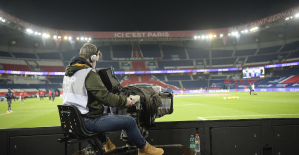 “Canal will not be the gravedigger of French football”: the boss of the encrypted channel breaks the silence on Ligue 1 TV rights
“Canal will not be the gravedigger of French football”: the boss of the encrypted channel breaks the silence on Ligue 1 TV rights Toulouse-Leinster: a dream final and some nightmares
Toulouse-Leinster: a dream final and some nightmares Lille-Lyon: Jonathan David against Alexandre Lacazette, scorers duel for Europe
Lille-Lyon: Jonathan David against Alexandre Lacazette, scorers duel for Europe




